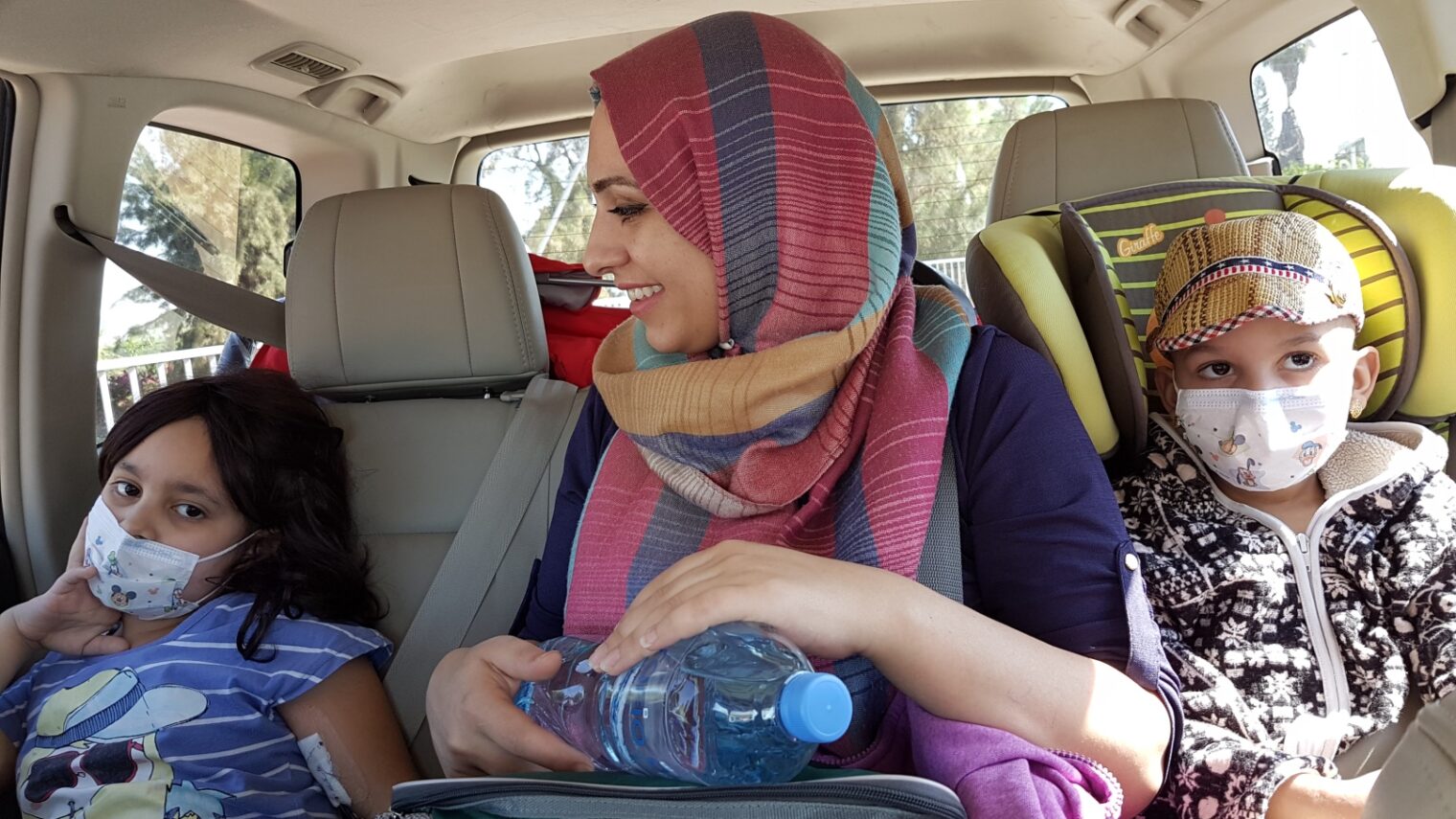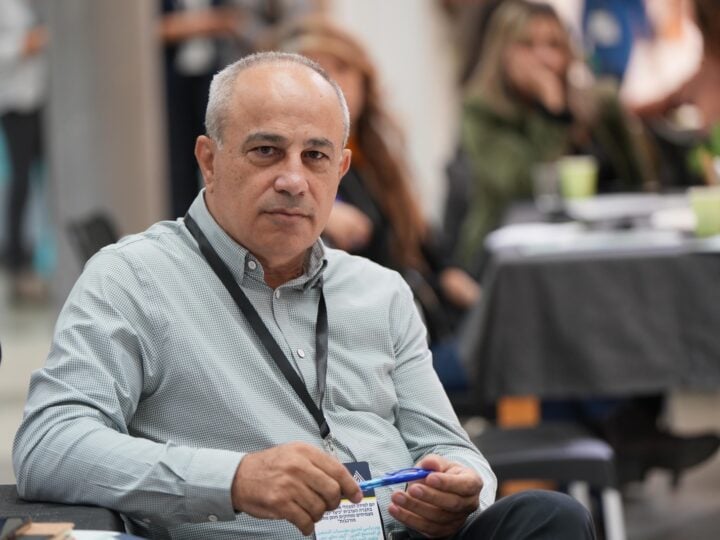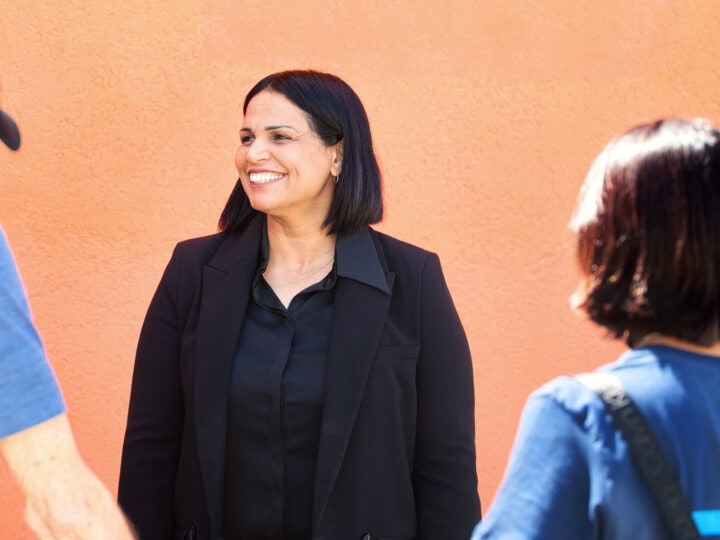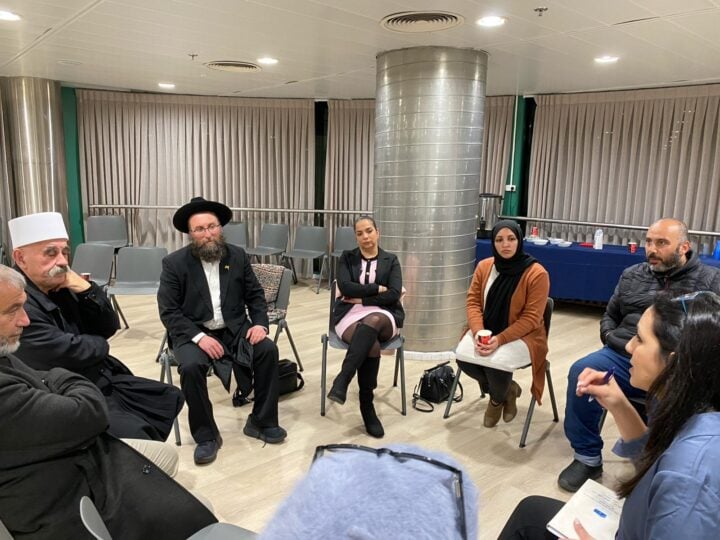“Quite a few years ago, a uniformed Israeli officer got lost on his way and ended up by mistake in Jenin. The street there started crowding around him, and there was a lynching atmosphere,” recounts Yuval Roth.
“The Palestinian police turned him over to Israeli hands. When the incident was over, the Palestinian officer who did so called me, and told me he did it for me – because a year earlier I drove his brother to Rambam,” he says, referring to the Haifa hospital.
“Without meaning to do so, I had a part in saving the life of an Israeli officer.”
This story perhaps best exemplifies what Roth’s organization, Road to Recovery, sets out to achieve: familiarity and empathy between people on opposite, feuding sides of a border.
The means: Getting Israelis and Palestinians in the car together as the former drive the latter to lifesaving treatments in Israeli hospitals.
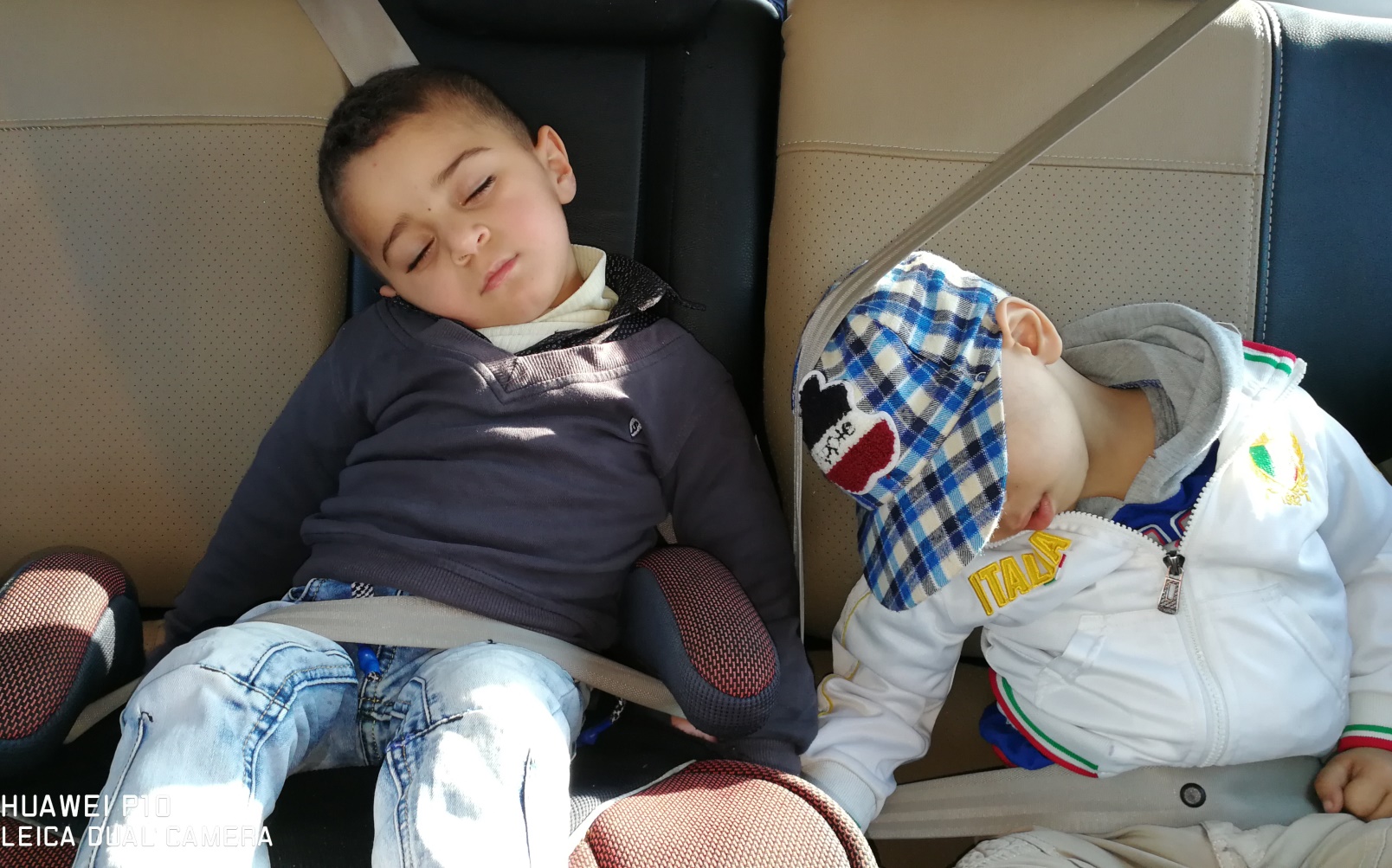
“It’s an opportunity to show the other side a different Israeli face than the one they know,” he says of the Palestinian patients. “And it’s also an opportunity to show our public that the Palestinians are exactly the same as us.”
“In my eyes, there’s no alternative to this encounter, of a person meeting another person. It’s an encounter that precedes everything – nationality, religion – it’s simply one person meeting another.”
Roth formally set up the Road to Recovery NGO in 2010, but the story behind it goes back many years to when his brother, a reserve solider, was kidnapped and murdered by Palestinians in the southern Gaza Strip.
Following the tragedy, Roth joined the Parents Circle – Families Forum, an Israeli-Palestinian forum of bereaved families. Some 13 years ago, a Palestinian member of the group asked Roth to drive his sick brother from the checkpoint separating Israel and the Palestinian territories to his treatment at an Israeli hospital. Roth obliged, and soon the word spread among Palestinians searching for help.
“My phone number was passed around between sick Palestinians and I saw that I was unable to meet all the requests,” Roth says. “So I began asking for help, and that’s how a group of volunteers began coming together.”
“In 2010, following a donation I received from Leonard Cohen, I formally set up the organization,” he explains, referring to the legendary singer. “The organization is based on volunteering, but the money is dedicated toward gas refunds.”
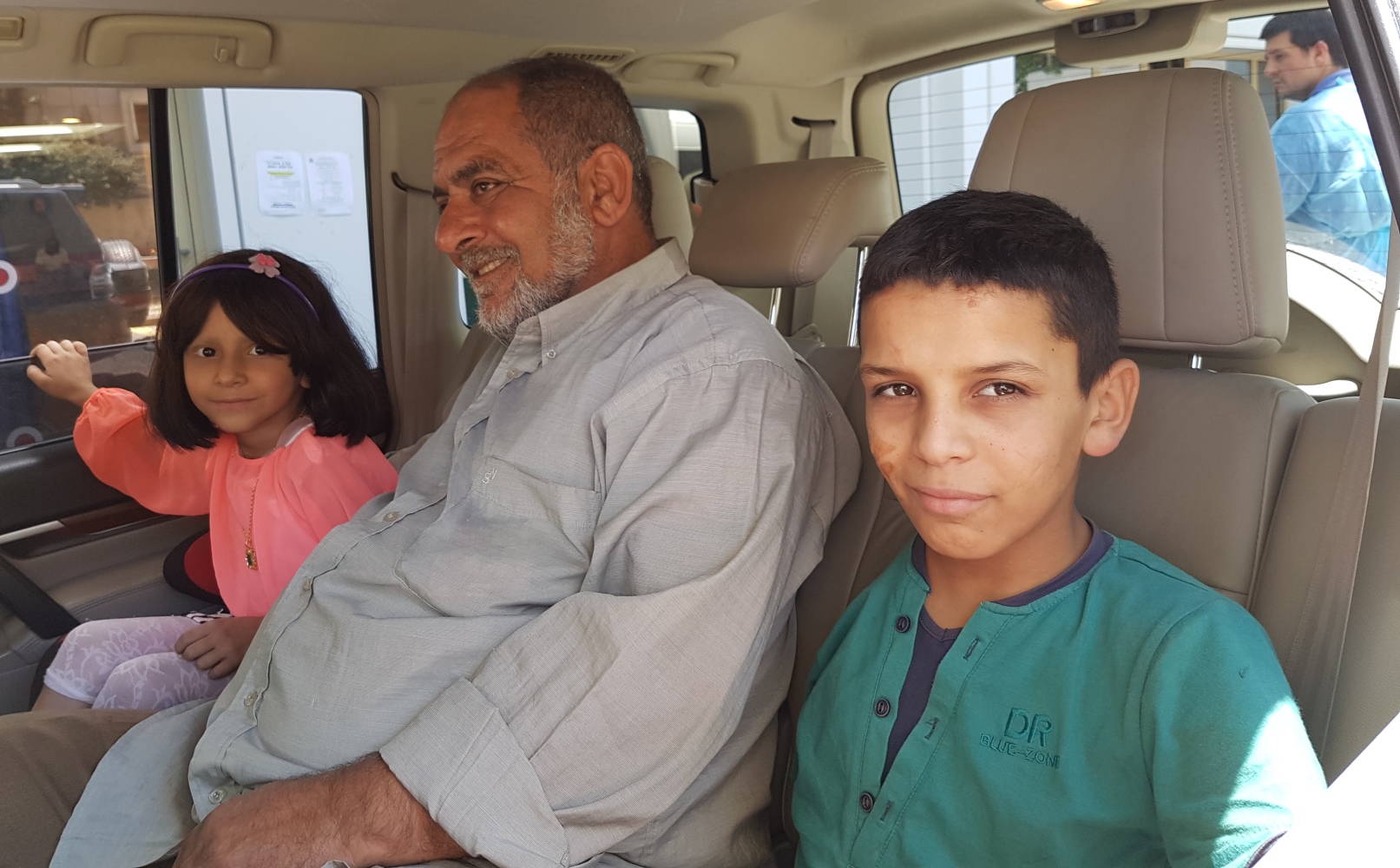
Some 900 active volunteers participate in the work of the organization, which drives about 150 people a day, saving them many hundreds of shekels in cab rides that could have made their treatment in Israel – itself paid for by the Palestinian Authority – an impossible feat.
As well as the daily hospital transport Road to Recovery enables, in summers the organization also facilitates happier encounters in the form of beach days for Palestinian patients and their families. On each of these days, some 200 families travel to the beach in Israel to enjoy a fun day out.
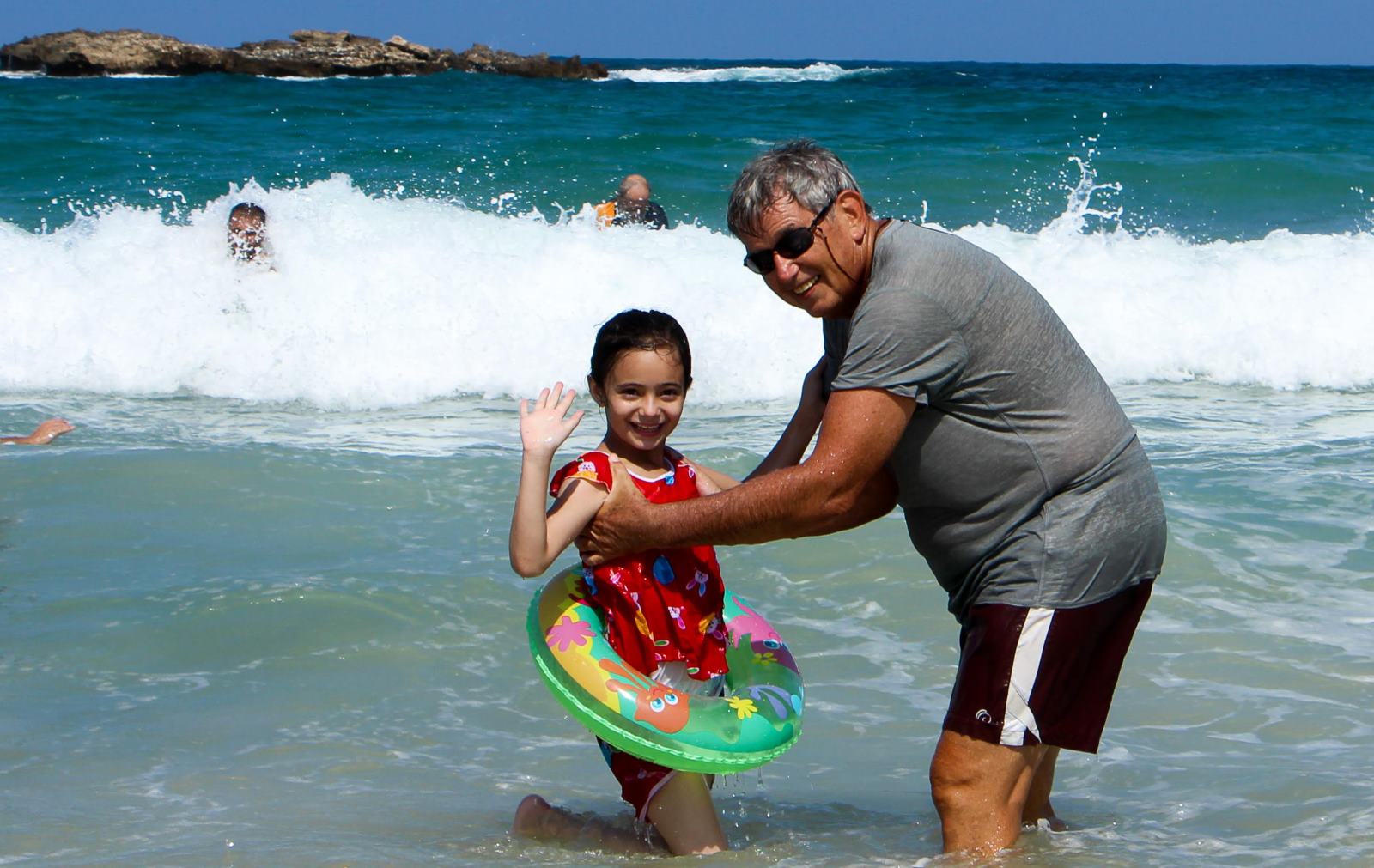
“These days are a great privilege for us, to do something with a different atmosphere, away from the stressed atmosphere in which we usually drive them to treatments,” Roth notes.
On the Palestinian side of the border, Road to Recovery’s West Bank coordinator Naeem Al-Baeda is one busy man. Al-Baeda became familiar with the organization’s work in 2010, when a baby relative of his needed to make his way every day to a Tel Aviv hospital for treatment.
At first, he couldn’t believe Road to Recovery’s activity.
“I couldn’t believe it until I saw it with my own eyes. I immediately liked this activity, this deed, the whole thing, and have volunteered ever since,” he recounts. “I began being approached by people I didn’t know, but I couldn’t say no to a cancer patient. Slowly I ended up in a situation where I’m coordinating the entire West Bank.”
This undertaking came at great cost to Al-Baeda. A construction worker by profession, he soon found himself busy talking on the phone all day for the organization, leading to his dismissal from several workplaces. The Palestinian Authority wasn’t too keen on what it views as “normalization” of ties with Israelis, and only after being questioned were matters clarified.
His family, he adds, has also had to make some sacrifices. “At first I almost got divorced from my wife,” he says. “I’d get 20 to 30 phone calls after coming home from work and didn’t have time for my wife and kids. It very much influenced my daily schedule and that of my family.”
But the message this activity promotes is well worth it, he notes.
“The main message is the encounter itself. Getting to know one another. These are two peoples who don’t meet and who hate each other without knowing, without meeting,” Al-Baeda says. “We live in the same land, so small, so beautiful, and we need to look out for it and for the future of our children.”
“The encounter itself, we call it ‘peace for an hour.’ And you really feel that from the very first encounter,” he says.
Prize winner
Road to Recovery recently won the IIE Victor J. Goldberg Prize for Peace in the Middle East. The $10,000 prize, awarded annually by the Institute of International Education, recognizes outstanding work being carried out jointly by an Israeli Jew and an Arab Muslim, whether a citizen of Israel or not. Roth and Al-Baeda embody what the award is all about.
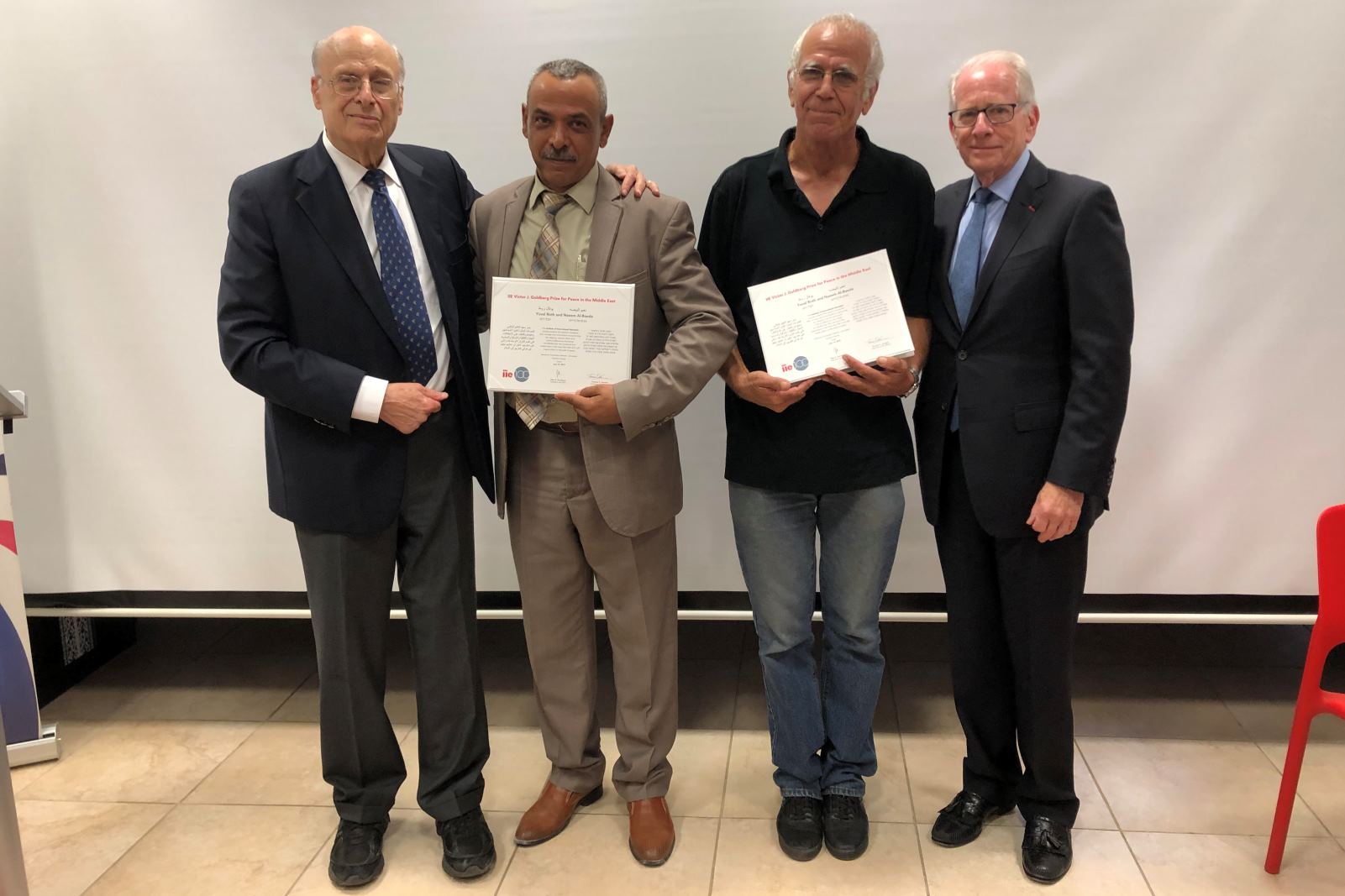
“The first thing they ask is what is courageous about what the candidates are doing,” IEE president and CEO Allan Goodman explains of the selection process. “The second dimension is compassion. What about these groups working together embodies compassion? We believe those two ingredients are the key to peace, and that’s why it’s a peace prize.”
Vic Goldberg, who endows the prize, agrees.
“These two men did not accept the status quo. They decided they were going to solve a problem and they solved it by doing it together. That’s the part that appealed to me,” he says.
Goldberg also explains what led him to found the award.
“As a 15-year-old American Jew in 1948 I lived in Chicago next to immigrants with numbers on their forearms,” he says. “I was totally drawn to this new nation, Israel, which I saw as a safe place for Jews and which embodied the moral and cultural values with which I was raised.”
Fast forwarding a few years, and “it’s 2004 and I watched nothing but strife in the Middle East and I was wondering what could bring peace to this troubled place. That was in my head when in 2004 I endowed the prize.”
This year’s choice of Road of Recovery demonstrates exactly what can be done, Goodman adds.
“In this particular case it’s so easy to imagine people like the winners going through life hating the other side because of what happened to a relative,” he says. “I try to put myself in their shoes – if my brother has been killed and suddenly someone from the other side says ‘Maybe you can help me.’
“It’s so hard to get over hatreds and loss of life by terrorism, and yet these individuals did that,” he concludes.
Over in the West Bank, Al-Baeda agrees.
“I’d like to say that the Palestinian people and the Israeli people are ready and capable and can very easily live as neighbors and as good friends,” he says. “We really wish for it and don’t want anything bad to happen to Israelis or to us. We’re humans living in one land that we can all live in; there’s room for everyone.”




